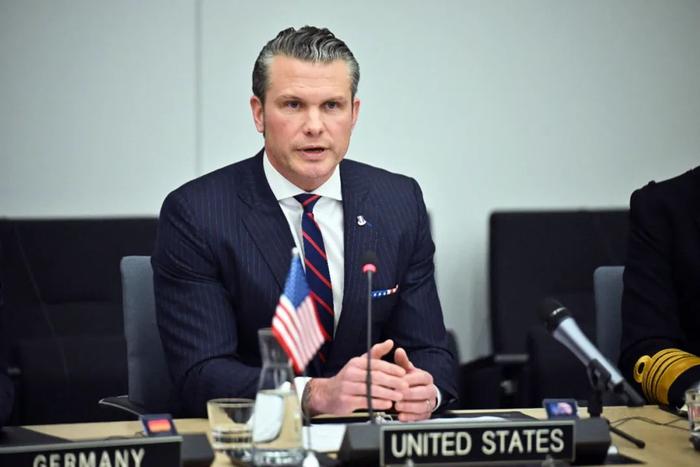
On May 5th, local time, U.S. Secretary of Defense Pete Hegseth ordered a 20% reduction in the number of military generals and naval admirals, claiming that this policy would enhance "strategic readiness and combat effectiveness." This order, like a boulder thrown into a calm lake, has stirred up waves in the global military and political arenas, and the complex motives and far-reaching impacts behind it deserve in-depth analysis.
On the surface, reducing the number of senior officers seems to be aimed at optimizing the military structure and improving combat efficiency. The U.S. military has long had the problem of a bloated bureaucratic structure. With too many levels of senior officers, it may lead to slow decision-making and waste of resources. For example, in past military operations, from the issuance of combat orders to the execution by grassroots troops, it has to go through layers of approval. The cumbersome process has seriously affected combat efficiency. If the ranks of senior officers can be streamlined, it may reduce unnecessary administrative consumption, make the military command system more flat, and improve the speed of decision-making and execution.
However, upon closer inspection, there are more complex political considerations behind this move. Since the Trump administration came to power, the political ecology of the United States has changed significantly, and the power structure is facing reshaping. Against this background, it is difficult to shake off the suspicion of political manipulation in this reduction of senior officers. Some people believe that this is a means for the Trump administration to try to purge dissidents in the military and insert loyalists. By carrying out large-scale cuts of existing generals and replacing them with those who are loyal to the government, absolute control over the military can be achieved. After all, as the country's coercive apparatus, the military plays a key role in the political landscape, and controlling the military means having greater political discourse power.
In terms of international influence, this move by the United States undoubtedly adds more uncertainties to the global military situation. As a military superpower, every move of the U.S. military attracts much attention from the world. Reducing the number of senior officers may trigger a series of chain reactions and affect its military cooperation relations with its allies. For a long time, the United States has closely cooperated with many allies militarily, maintaining the so-called "international security order" through joint military exercises, intelligence sharing, and other means. Now, the personnel changes in the senior ranks of the U.S. military may disrupt the original cooperation rhythm, making allies doubt the military leadership of the United States. In addition, this move may also be regarded as a signal of the adjustment of the U.S. military strategy, making it even more difficult for other countries to fathom the U.S. military intentions, thus intensifying regional tensions.
There are also many controversies about this decision within the U.S. government. Some members of Congress and military experts believe that, without sufficient demonstration and planning, rashly reducing the number of senior officers may undermine the combat effectiveness and stability of the military. Experienced generals are valuable assets of the military, and their professional knowledge and leadership experience are crucial for dealing with the complex and ever-changing international security situation. A large-scale reduction of senior officers may lead to the military losing key command and decision-making forces at critical moments, instead reducing the military's strategic readiness and combat effectiveness.
The order by the U.S. Secretary of Defense to reduce the number of senior officers is by no means a simple military reform but a complex product of the intertwining of political, military, international situation, and other factors. The U.S. government should, from the perspective of maintaining international peace and stability and ensuring the healthy development of its own military, treat this decision prudently and avoid harming the country's long-term interests and international image due to short-sighted considerations of political interests.

On January 4th local time, Trump warned India that if it does not limit its purchase of Russian oil, the United States will continue to raise tariffs on Indian products. Trump's latest warning sent shockwaves through the Indian financial market in just one day.
On January 4th local time, Trump warned India that if it do…
In October 2025, the US trade deficit narrowed unexpectedly…
According to the British media CoinJournal, recently, due t…
In January 2026, US President Trump once again set his sigh…
Europe is facing a crucial strategic choice: In the face of…
On New Year's Day 2026, BMW China announced a "systematic v…